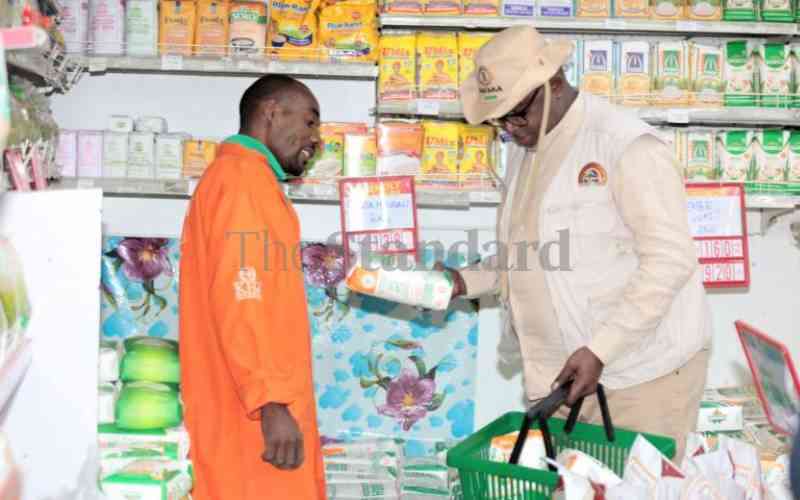The Central Bank of Kenya has turned around the country’s dwindling import cover to end the year on a strong footing.

The latest data from the regulator published in its weekly statistical bulletin shows the country’s import cover now stands at 4.6 months, up from the lowest point of 3.98 months registered in September.
Kenya’s import cover hit the lowest in September, dropping aggressively as the country battled the slide of the Kenyan shilling. The situation became dire when the country’s re-usable foreign exchange reserves dropped below the four months import cover threshold, weakening the bank’s ability to support the shilling.
The CBK has accumulated more foreign exchange reserves, growing the dollars by 15 per cent from $6.2billion in October to $7.2billion this week.
The foreign reserves had been on a downward trend from July this year before the regulator stepped up its fight to stabilise the shilling.
Section 26 of the CBK Act obligates the bank to ‘at all times use its best endeavours to maintain a reserve of external assets at an aggregate amount of not less than the value of four months import as recorded and averaged for the last three preceding years’.
“There is no magic in the four-month import cover number but rather convenience to enable the CBK to fulfil its role as and when required. The foreign exchange market activity of the CBK serves the greater monetary policy goal of managing liquidity in the banking system,” the CBK says on its website.
The weakening of the currency saw the International Monetary Fund (IMF) allow Kenya to have an extra Sh8 billion as a Standby Credit Facility that the Government can turn to “in the event of an exogenous shock”.
This brings the total to Sh64 billion including what was approved in February 2015.
The change of fortunes gives credit to the increased market intervention by the CBK to sell dollars in a bid to stop the free fall of the shilling. The shilling has remained above Sh102 exchange rate against the dollar in the last few weeks, thanks to CBK’s intervention in the market, as and when required. It sells dollars and mops up excess liquidity to maintain stability of the local currency.
Since the beginning of July, CBK has mopped up Sh284 billion in excess liquidity from the markets, setting the stage for a major liquidity crunch.
The regulator has also raised lending rates twice since June, which has seen credit charges go up 300 basis points to 11.50 per cent.
 The Standard Group Plc is a multi-media organization with investments in media
platforms spanning newspaper print operations, television, radio broadcasting,
digital and online services. The Standard Group is recognized as a leading
multi-media house in Kenya with a key influence in matters of national and
international interest.
The Standard Group Plc is a multi-media organization with investments in media
platforms spanning newspaper print operations, television, radio broadcasting,
digital and online services. The Standard Group is recognized as a leading
multi-media house in Kenya with a key influence in matters of national and
international interest.
 The Standard Group Plc is a multi-media organization with investments in media
platforms spanning newspaper print operations, television, radio broadcasting,
digital and online services. The Standard Group is recognized as a leading
multi-media house in Kenya with a key influence in matters of national and
international interest.
The Standard Group Plc is a multi-media organization with investments in media
platforms spanning newspaper print operations, television, radio broadcasting,
digital and online services. The Standard Group is recognized as a leading
multi-media house in Kenya with a key influence in matters of national and
international interest.










